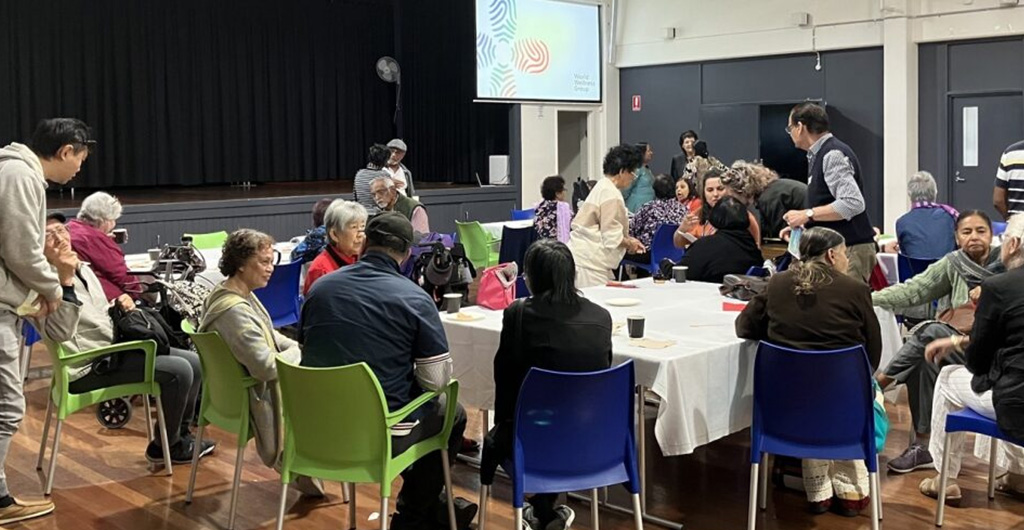Additional seniors who come from diverse multicultural backgrounds are now benefiting from the Multicultural Seniors Social Link Program which was established this year by the World Wellness Group (WWG) thanks to a $100,000 grant from the Eastern Star Foundation. The program, which is run on Brisbane’s Northside where there are fewer community networks and services for multicultural seniors, aims to connect seniors from diverse multicultural backgrounds to each other, to information, resources, and social activities in their local area.
Program Coordinator Yen Ping Chng, who is a Mandarin speaker with a professional background in social and community services and aged care, says the group is already building social connections through its co-designed approach. She also says that the group has almost tripled to 30 in just two months after placing in-language advertisements in multicultural media outlets to help attract new members.
“The social group, which meets monthly at the Burnie Brae Centre at Chermside, provides participants with information on healthy ageing topics such as falls prevention, driving cessation, disaster preparedness, mental well-being, elder law, and physical activity,” states Yen.
“Personally, the group is something I look forward to as it allows people to build connections, make new
friends, and fills a social gap in a senior’s life – especially if they are socially isolated.”
The program not only provides a social outlet for multicultural seniors but also tries to break down the barriers to social isolation.
“I really enjoy visiting our group participants in their homes, getting to know them, and conducting a holistic wellbeing assessment to better understand their needs,” Yen says.
“Many people are isolated, bored, and housebound. Some have chronic mental health concerns that we have responded to by linking people to in-house mental health services”.
One of the group’s active participants, Kumar, who used to be an academic during his professional life, says that the extent of the challenges that migrant seniors face depends on when they arrive in Australia.
“If they had relocated in their younger days, they may not face as many challenges as those who are only just relocating with their adult children,” said Kumar.
“Having to re-adapt to a new environment and culture is one of the bigger challenges, especially if English is not your first language”.
“From a general point of view, racial prejudice, a lack of motivation to go out especially if it is a new environment, and a lack of awareness of social gatherings or events, which can also be caused by a language barrier, can contribute to social isolation for seniors,” said Kumar.
Kumar says that more research needs to be done to find the right mix of hosts and enablers to combat social isolation.
“That being said, it is important to have people on the ground to build rapport with our multicultural seniors while learning and understanding their needs – which is exactly what Yen and the program are doing,” said Kumar.
“It is important that people feel safe to discuss the problem.”
Eastern Star Foundation Chair, Elizabeth Watt, says that the Foundation made the strategic decision several years ago to support charitable initiatives which help to address the issue of social isolation for the aged.
“The Multicultural Seniors Social Link Program aligns well with the Eastern Star Foundation’s Vision and Mission which aims to help our aged to participate in their community, have a support network and to have independence,” said Elizabeth.
“It is wonderful to hear that the program is already breaking down social barriers for multicultural seniors and that the Foundation has been able to play a part in that.”


